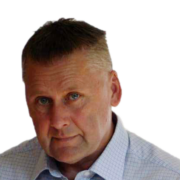

Following the trail of smugglers and terrorists. What is the purpose of Russia's presence in the Sahel countries?
Russia’s increased presence in the Sahel after France’s withdrawal may allow it to pressure European countries to compromise on Russian actions in other regions, such as NATO’s Eastern flank, due to migration and terrorist threats.
The Sahel – the geographical location course nightmare
The Sahel is a semi-arid strip of African land stretching over 4,000 kilometers from the Atlantic coast in the Gambia to Eritrea on the Red Sea. The region includes Mauritania, Mali, Niger, Chad, Sudan, and Eritrea, but Burkina Faso and Senegal are also located nearby. The name Sahel comes from the Arabic word Sahil, meaning shore – for the region’s residents, it is the shore of the Sahara Desert
The dry season, lasting about eleven months, has caused water reservoirs to dry up and groundwater to drop significantly. It has led to the collapse of nomadic pastoralism, once a source of livelihood and a traditional way of life. Drought since the mid-sixties has caused 50 million deaths and mass migration to cities and Europe. The first stops, Greece and Italy, have become commonplace.
Residents are fleeing this region due to hunger and violence from terrorist organizations that use it as a base for neighboring trips. If the drought and violence continue, it may contribute to another migration crisis, with the recent one only a foretaste of the troubles that may await Europe.
According to the Global Terrorism Index, almost half of all terrorist-related deaths worldwide occur in the Sahel region, particularly Mali, Niger, and Burkina Faso. The area is overflowing with weapons supplied by Russia to both dictators and terrorists. Despite being poverty-stricken, the Sahel is rich in resources such as oil, gas, gold, uranium, and rare metals. These resources attract various terrorist organizations, including the Russian Wagner Group, which profits from their extraction and export while providing military support to the military juntas ruling in countries like Mali, Burkina Faso, and the Central African Republic.
France departs, and Russia joins the party
Until the 1960s, most Sahel states were French colonies, except for Italian Eritrea and British Sudan. It explains the solid French influence – cultural, economic, and military. Nowadays, several thousand French soldiers remain stationed there. However, President Emmanuel Macron recently announced the withdrawal of the French contingent, marking a significant change in the region.
Although not directly, Russia is increasingly strengthening its presence in this location. However, there are known cases of direct interference by Russian diplomacy as international politics despises an unfilled void. In the Central African Republic, representatives of the Russian government insisted that President Faustin-Archange Touadéra abolish constitutional restrictions on the number of presidential terms. After he refused, he was overthrown in a military coup. The Wagner Group officially supports and protects the military junta, which has been accused of killing civilians and opposition members.
Due to poverty, violence, and widespread corruption, the Sahel states are politically unstable. Military coups have occurred in Mali, Chad, Burkina Faso, and Niger in recent years, with evidence suggesting involvement of the Wagner Group.
James Kariuki, UK’s Deputy Ambassador to the UN, openly expressed the opinion about the Wagner Group fueling anti-Western sentiment and destabilizing the region to support native dictatorships in exchange for access to resources like gold, diamonds, and uranium.
Wagner group agents suggested to dictators how to mock democratic movements and Western countries, particularly France, via social media campaigns. They supported the creation of children’s cartoons portraying Russia as a savior of Africa in the Central African Republic.
The Wagner Group is already in Mali, the Central African Republic, and Mozambique. However, its representatives are suspected to be present in all Sahel countries. Recently, they became active in Niger, where the military overthrew the legally elected and pro-Western president, Mohamed Bazoum.
Shortly after his arrest, as if enchanted by a magical spell, thousands of demonstrators with Russian flags gathered in front of a French military base in Niamey, the capital of Niger. It was likely due to the region’s anti-French sentiment.
Russia’s objectives in the Sahel
To increase its influence in the Sahel states, Russia may exert pressure on European countries that fear a large influx of refugees and terrorist threats. Vladimir Putin understands that by pressuring Paris in the Sahel, for instance, through the threat of uncontrolled migration, France may be more willing to compromise regarding the Kremlin’s actions in areas where France has no direct interests, such as Eastern Europe.
From a European perspective, the Sahel issues are of great concern. It is not productive to dismiss them. The Sahel is a main transit point for migration and smuggling. Moreover, it is a base for Islamic terrorists. The Lukashenka regime’s organization of illegal migration of refugees from the Middle East to countries such as Poland and Lithuania is a clear example of the severity of this threat.
Antoni Styrczula for belsat.eu
Translated by PEV
The opinions and thoughts expressed in the text reflect only the author's views.


